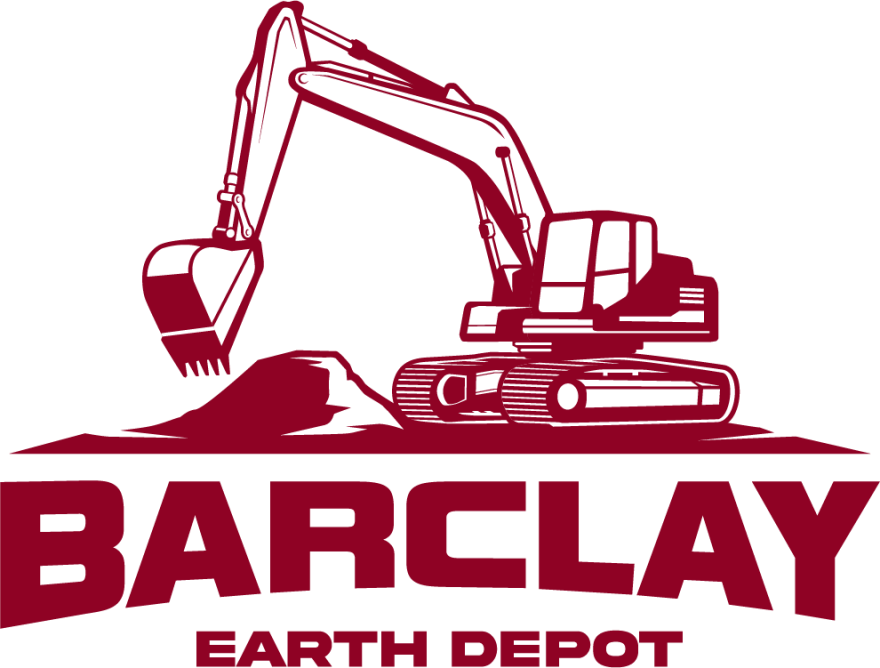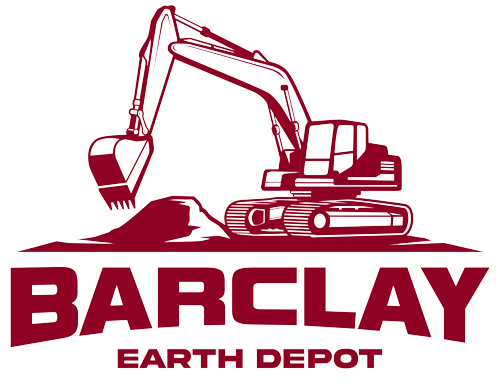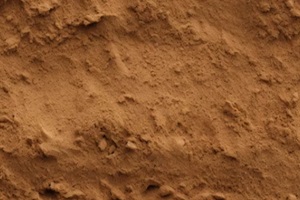 Sand is an essential component of many construction materials, including concrete, mortar, and plaster. The specific properties and particle size distribution of construction sand, known as gradation, significantly influence the performance and quality of these materials.
Sand is an essential component of many construction materials, including concrete, mortar, and plaster. The specific properties and particle size distribution of construction sand, known as gradation, significantly influence the performance and quality of these materials.
As Fort Myers continues to grow with new residential and commercial projects, proper understanding and testing of sand gradation is the only way to ensure durable, high-quality construction.
What Is Sand Gradation?
Sand gradation refers to the distribution of particle sizes within a sand sample. It classifies sand particles into different size ranges and determines what percentage of the sample is in each range.
Well-graded sand has an even distribution of varying sizes of sand grains. On the other hand, in poorly graded sand, most particles are concentrated in one size range only.
Proper sand gradation is essential for construction quality. When sand grains within concrete, mortar, or plaster are well-graded, they efficiently fill gaps between the larger particles.
This particle packing enables the material to become denser, stronger, and more durable. However, if sand gradation is poor, it leaves behind air pockets in the mix, negatively impacting strength.
Types of Sand Gradation
There are three main types of sand gradation:
Well-Graded Sand
This type contains sand grains ranging across different particle sizes, with a proportional distribution. Around 30-40% usually exists in the largest and smallest sizes respectively.
The well-graded variety works as an excellent infill between the bigger particles, increasing concrete density. Due to its balanced particle size distribution, well-graded sand also enhances workability.
Poorly-Graded Sand
A poorly-graded sand sample lacks gradation diversity. In this, over 90% of particles belong to only one size classification leading to issues such as segregation where different-sized grains separate out.
It also reduces workability and leaves behind empty pockets within the set concrete, mortar, or plaster since the lack of smaller particles to fill voids negatively impacts overall strength and performance.
Gap-Graded Sand
As the name suggests, this variety has a gap in its gradation. Particles of a mid-range size are missing, while smaller and larger grains are present.
Gap-graded sands have specialized applications, such as providing enhanced drainage capacity in concrete. But for general construction, they suffer from similar drawbacks as poorly-graded sands regarding reduced strength and segregation risks.
Factors Affecting Sand Gradation
The source of sand itself plays a key role in determining natural gradation. Mining location, method of extraction, and processing can create variability in grading.
Environmental exposure also causes particle breakdown over time and any presence of organic matter or contaminants further modifies size distribution.
However, regular testing will help mitigate grading issues resulting from these factors.
Testing Sand Gradation
Sieve analysis provides a simple yet effective technique for evaluating sand gradation. Through this process, the sand sample gets passed through a series of wire mesh sieves stacked one above the other, with mesh size decreasing from top to bottom.
By weighing retained particles on each sieve, the particle size distribution can be analyzed.
The test method includes:
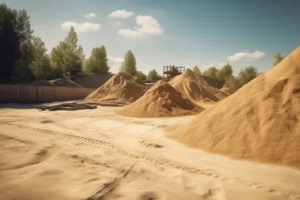 Taking a representative sample and recording its weight
Taking a representative sample and recording its weight- Stacking sieves above a base pan in order of decreasing size
- Placing sample in top sieve and shaking stack for about 10 minutes
- Weighing particles collected on each sieve
- Determining the percentage retained on each sieve
By comparing results to an ideal gradation benchmark, the sample’s suitability for concrete or related applications can be verified.
Along with sieve testing, visual inspection, moisture measurements, and checks for clay or organic impurities also assist in quality control.
With the pace of construction growth in Fort Myers, regular gradation checks are necessary to ensure optimal aggregate grading for various projects in the area.
Impact of Sand Gradation on Construction Quality
Achieving appropriate, consistent sand gradation is significant for the success of construction projects using concrete, mortar, stucco, paver installations, and other applications.
Workability and Mix Design
For a concrete mix to perform well, adequate workability or placeability is essential for proper pouring and finishing. Harsh gradations can also hamper the ease of placement.
Well-proportioned particle sizes enhance the viscosity of the fresh mix so that pouring and trowel work becomes easier and also reduces water requirements, resulting in better-quality concrete.
Strength and Durability
When concrete cures, good interlocking between differently sized aggregates creates increased density and improved bonding.
Strength parameters such as compressive stress resistance and flexural capacity are enhanced. Resistance to weathering effects and wear also goes up with durability, increasing structure lifespan.
Mortar and Plaster Properties
As with concrete, mortar and plaster mixtures benefit from proper sand gradation. Workability, consistency, and strength get a boost.
Well-graded particles prevent dry mixes or moisture variations within the material that lead to weak spots and cracking over time. This ensures superior bond strength and structural stability in masonry applications.
Paver Installations and Drainage
Sand used as paver base material must promote adequate drainage below the paved blocks to prevent waterlogging. Uniformly graded sands often retain too much moisture, causing pavement failures.
Both paver stability and water runoff rely on good subsurface permeability, attained by proper base sand gradation.
Best Practices for Sand Gradation in Fort Myers
To achieve excellent performance in concrete, mortar, and related mixtures, Fort Myers contractors must focus on these quality measures:
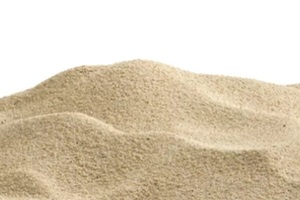 Sourcing from premium quarries known for producing consistently well-graded construction sand
Sourcing from premium quarries known for producing consistently well-graded construction sand- Proper handling, storage, and covering procedures to prevent exposure-related particle degradation
- Frequent gradation testing through sieve analysis for verification, especially when changing aggregate sources
- Close coordination with material suppliers to evaluate test history and development of site-specific gradation guidelines
- Collaborating with experienced concrete admixture professionals to formulate optimized recipes tailored to the sand
Turn to Barclay Earth Depot for Quality Construction Sand & Gradation Expertise
With aggregate materials being the primary ingredients across Fort Myers construction, understanding and continuously monitoring gradation is indispensable to your project’s success.
Barclay Earth Depot has an extensive quality control program focused on sieve testing and gradation compliance of all our locally dredged construction sand. Our technical expertise helps customize mix designs to your specific application for maximized strength and durability.
Contact us today at (941) WE-DIG-IT or online for properly graded, world-class sand for your next project in the Fort Myers area.
